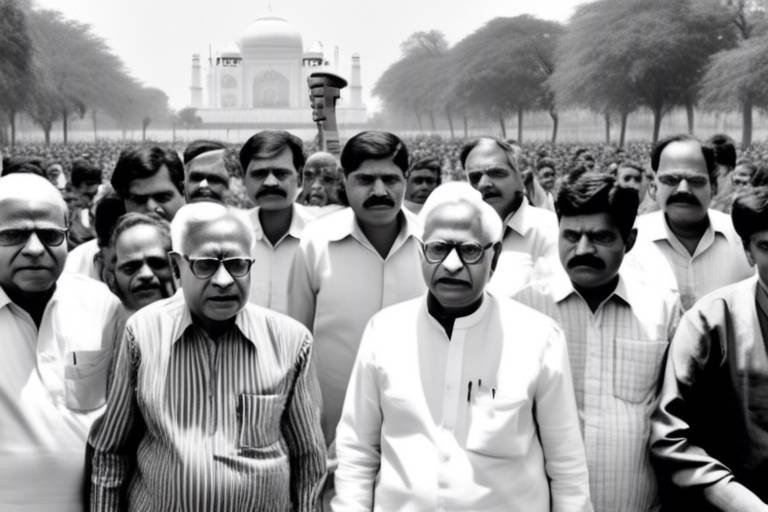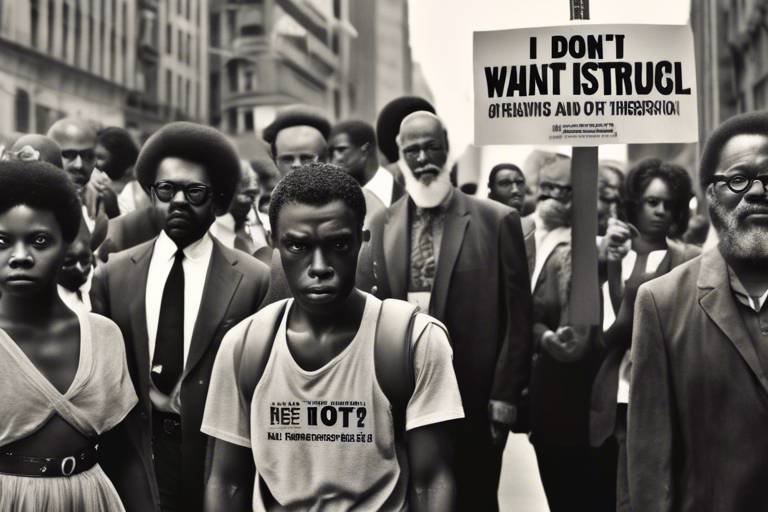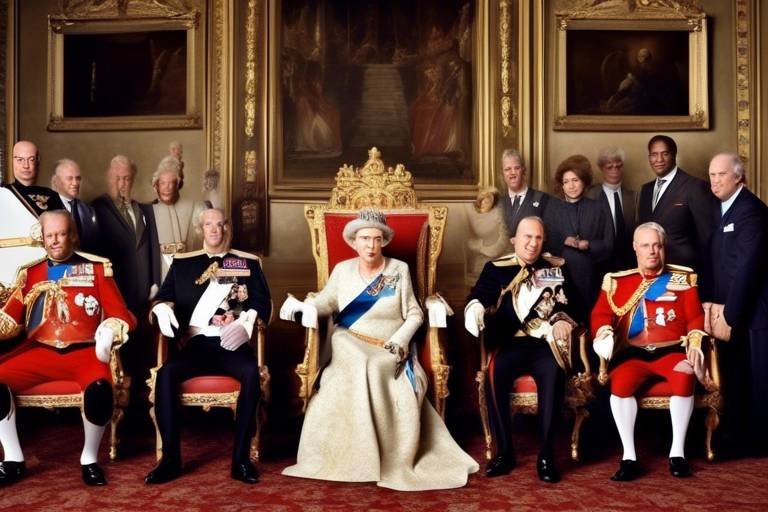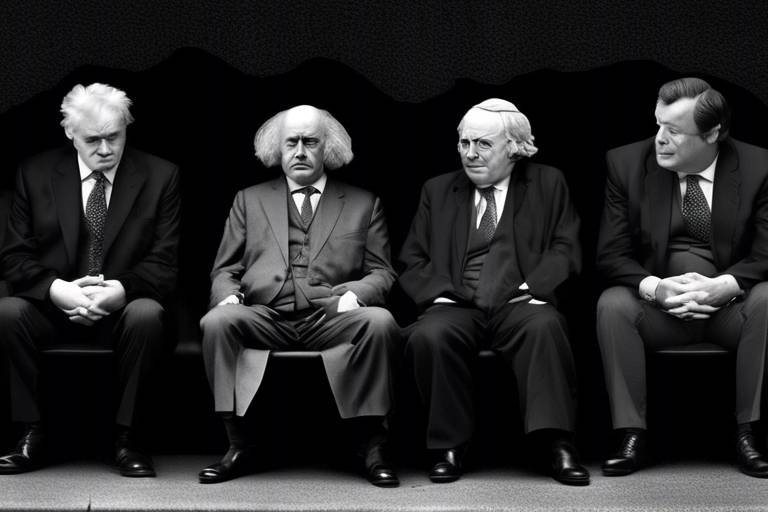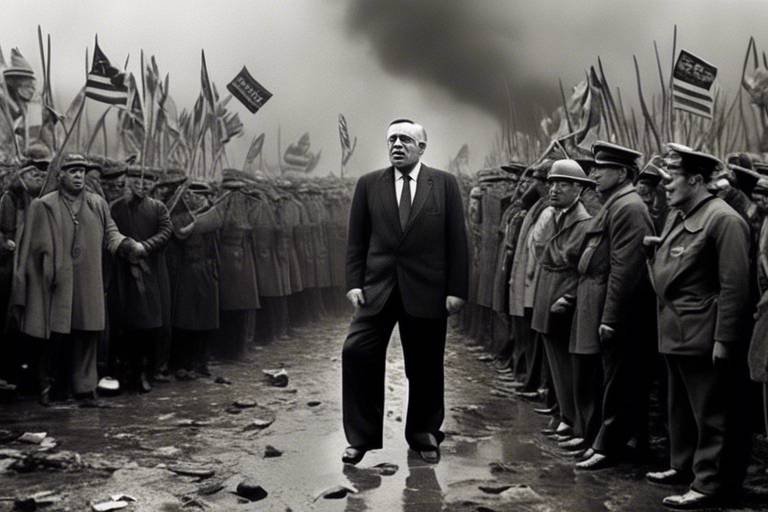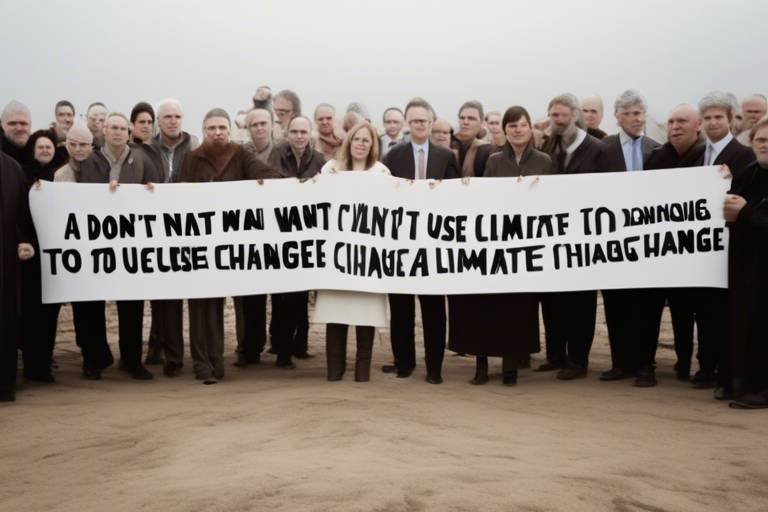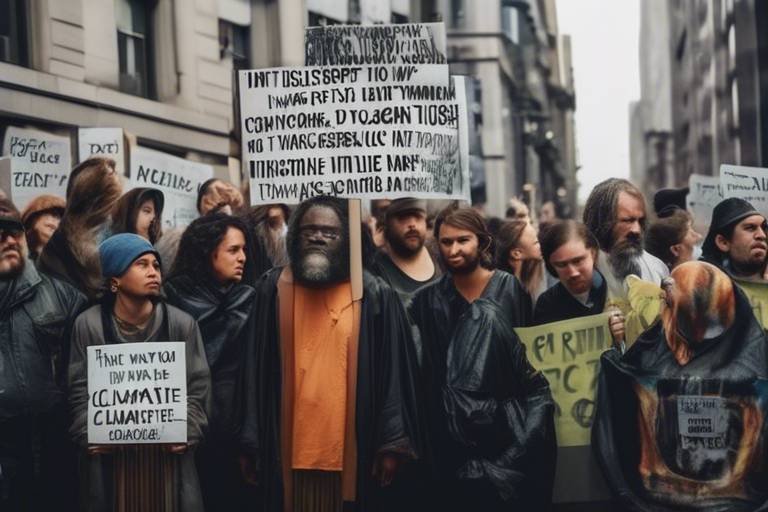Exploring Spinoza's Political Philosophy
When we dive into the world of Baruch Spinoza, we are stepping into a realm where philosophy meets the practicalities of governance. Spinoza, a 17th-century Dutch philosopher, is often seen as a trailblazer in political thought, challenging the conventional norms of his time. His ideas resonate with the complexities of modern society, making them not just relevant but essential for understanding the dynamics of power, freedom, and ethics within a political context.
At the heart of Spinoza's political philosophy lies a profound commitment to democracy and the belief that power should rest in the hands of the people. Unlike many of his contemporaries who favored monarchies or authoritarian regimes, Spinoza envisioned a system where governance is a collective endeavor. This perspective invites us to reconsider the very nature of authority and representation. He argued that a true democracy is built upon the idea that individuals are not merely subjects to be ruled but rather active participants in shaping their own destinies.
Furthermore, Spinoza's ideas challenge us to think critically about the relationship between individual freedom and societal cohesion. How do we balance our personal liberties with the needs of the community? This question is central to Spinoza's thought. He posited that individual freedom is not an absolute right but rather a dynamic interplay between self-interest and the common good. In his view, true freedom arises when individuals recognize their interconnectedness with others, leading to a harmonious society where everyone's rights are respected.
Spinoza's ethical framework plays a pivotal role in his political philosophy. He believed that ethics and politics are intertwined, shaping our understanding of justice and rights. For Spinoza, justice is not merely a legalistic concept; it is deeply rooted in the natural order of the universe. This perspective allows us to see justice as a means to achieve societal harmony rather than just a set of rules to be enforced. His vision of justice is about creating conditions where individuals can thrive together, fostering a sense of community and shared responsibility.
Moreover, Spinoza's take on the social contract offers a refreshing perspective on how states are formed. Unlike traditional views that emphasize a contract based on fear or coercion, Spinoza argued for a social contract that prioritizes collective security and mutual benefit. This approach not only highlights the importance of cooperation among individuals but also underscores the necessity of a government that is accountable to its citizens.
To truly appreciate Spinoza's political thought, we must also consider the historical context in which he lived. The 17th century was a time of great political upheaval in Europe, marked by wars, revolutions, and shifting power dynamics. This tumultuous backdrop profoundly influenced Spinoza's ideas. He witnessed firsthand the struggles for freedom, the clash of religious beliefs, and the quest for a more just society. Understanding this context enriches our comprehension of his philosophy and its relevance to contemporary discussions about governance and rights.
In addition to his views on democracy and individual freedom, Spinoza was a staunch advocate for religious tolerance. He believed that a stable society could only be achieved when individuals are free to practice their beliefs without fear of persecution. This commitment to tolerance is particularly significant in today's world, where religious conflicts continue to challenge social cohesion. Spinoza's arguments for the separation of church and state remain a cornerstone of modern democratic thought, promoting coexistence and respect for diverse beliefs.
Spinoza’s critique of religious authority also deserves attention. He challenged the intertwining of religion and politics, arguing that dogmatism stifles freedom of thought and expression. By advocating for a governance model that respects individual beliefs while maintaining the integrity of the state, Spinoza laid the groundwork for a more enlightened approach to political discourse.
As we reflect on Spinoza's political philosophy, it becomes evident that his ideas have left an indelible mark on modern democratic thought. His emphasis on collective governance, individual freedom, and ethical responsibility resonates strongly in contemporary discussions about rights and societal values. Spinoza's legacy serves as a reminder that the pursuit of a just society requires ongoing dialogue, critical thinking, and a commitment to the common good.
- What is Spinoza's main contribution to political philosophy?
Spinoza's main contribution lies in his advocacy for democracy, individual freedom, and the ethical foundations of governance. - How does Spinoza view the relationship between individual freedom and society?
He believes that true freedom is achieved when individuals recognize their interconnectedness with others and act in harmony with the community. - What is the significance of religious tolerance in Spinoza's philosophy?
Spinoza argues that religious tolerance is essential for a stable society and promotes coexistence among diverse beliefs. - How does Spinoza's historical context influence his political ideas?
The political upheaval of the 17th century shaped Spinoza's views on governance, freedom, and the role of the state in society.

Spinoza's Concept of Democracy
Spinoza's vision of democracy is nothing short of revolutionary. He believed that true democracy is not merely a system of governance but a collective expression of the will of the people. In his eyes, the power should reside with the populace, challenging the traditional hierarchies that often dominated political thought. This perspective invites us to reconsider the very foundations of authority and representation. Instead of a few individuals wielding power over the many, Spinoza envisions a society where every voice matters, creating a tapestry of shared governance.
Imagine a world where decisions are made not in the shadowy corridors of power, but in the bright light of public discourse. Spinoza argued that democracy is about collaboration and mutual respect, where citizens engage in dialogue, debate, and deliberation. This idea is particularly relevant in today's world, where polarized opinions often drown out constructive conversations. By emphasizing the importance of collective decision-making, Spinoza's philosophy encourages us to move beyond mere voting and towards active participation in civic life.
One of the most compelling aspects of Spinoza's democracy is his critique of traditional authority. He challenged the notion that a select few are inherently more qualified to govern than the masses. Instead, he posited that governance should be a reflection of the collective will, where leaders are accountable to the people they serve. This radical democratization of power raises important questions: What does it mean to be a citizen in a democracy? How can we ensure that everyone's voice is heard?
To further understand Spinoza's concept of democracy, it's essential to consider his views on individual rights and freedoms. He believed that the flourishing of individuals contributes to the well-being of society as a whole. In this sense, democracy is not just about the majority rule; it's about creating an environment where individual liberties are protected while still fostering a sense of community. This balance between personal freedom and collective responsibility is what makes Spinoza's vision so compelling.
Spinoza's ideas can be summarized in the following key principles that define his concept of democracy:
- Collective Governance: Power is derived from the people, emphasizing the importance of participation.
- Accountability: Leaders must be answerable to the citizens, ensuring that governance reflects the public's will.
- Individual Rights: Protecting personal freedoms is crucial for the overall health of society.
- Dialogue and Discourse: Encouraging open discussions fosters a more engaged and informed citizenry.
In conclusion, Spinoza's concept of democracy is a profound invitation to rethink how we engage with our political systems. By advocating for a model that prioritizes collective governance, individual freedoms, and accountability, he offers a framework that is remarkably relevant in our contemporary society. His challenge to traditional authority encourages us to reflect on our roles as active participants in democracy, urging us to ask ourselves: How can we contribute to a more just and representative society?

The Role of Individual Freedom
When we dive into the heart of Spinoza's philosophy, we quickly realize that individual freedom isn't just a side note—it's the main event! Spinoza believed that true freedom is not merely the absence of constraints, but rather the ability to act according to one's own nature and reason. Imagine living in a world where your choices are guided by your own understanding and not by external pressures or societal norms. Sounds liberating, right? This is the essence of Spinoza's vision of freedom.
But how does this personal liberty fit within the framework of a cohesive society? Spinoza argued that while we are all unique individuals with our own desires and needs, our freedom should not come at the expense of others. He emphasized the importance of balancing self-interest with the well-being of the community. It’s like being part of a grand orchestra: each musician plays their own part, but they must also harmonize with others to create a beautiful symphony. In this way, Spinoza saw individual freedom as a crucial component of a thriving society, where personal liberties and communal responsibilities coexist.
Central to this discussion is Spinoza's idea that freedom is inherently linked to reason. He believed that when individuals act rationally, they are more likely to contribute positively to society. This aligns closely with his ethical framework, where understanding our own motivations leads to better choices for ourselves and for others. It’s a bit like having a compass; when you know where you’re headed, you’re less likely to get lost in the chaos of life.
Spinoza also recognized the potential dangers of unchecked freedom. He was acutely aware that without some form of governance or societal structure, individual liberties could lead to chaos. This is where his thoughts on the role of the state come into play. The state, in Spinoza's view, should serve as a protector of individual freedoms while ensuring that these freedoms do not infringe upon the rights of others. This delicate balance is what he believed would lead to a more just and harmonious society.
To illustrate this balance, consider the following table that outlines Spinoza's views on individual freedom and the role of the state:
| Aspect | Individual Freedom | Role of the State |
|---|---|---|
| Definition | Acting according to one's nature and reason | Protecting individual freedoms |
| Goal | Personal fulfillment | Social harmony |
| Potential Risks | Chaos and conflict | Overreach and oppression |
| Ideal Outcome | Empowered individuals | Just society |
In conclusion, Spinoza's concept of individual freedom is not just about doing whatever we please; it's about understanding our place within the larger tapestry of society. It’s about recognizing that our actions have consequences and that true freedom flourishes when it is exercised with respect for others. This notion of responsible freedom remains relevant today as we navigate the complexities of modern life.
- What is Spinoza's view on freedom? Spinoza sees freedom as the ability to act according to one's own nature and reason, balanced with the needs of the community.
- How does Spinoza reconcile individual freedom with societal needs? He argues that individual freedoms should enhance, not hinder, the well-being of society, much like an orchestra where individual musicians contribute to a collective harmony.
- Why is the role of the state important in Spinoza's philosophy? The state protects individual freedoms while ensuring that these freedoms do not infringe upon the rights of others, maintaining social order and harmony.
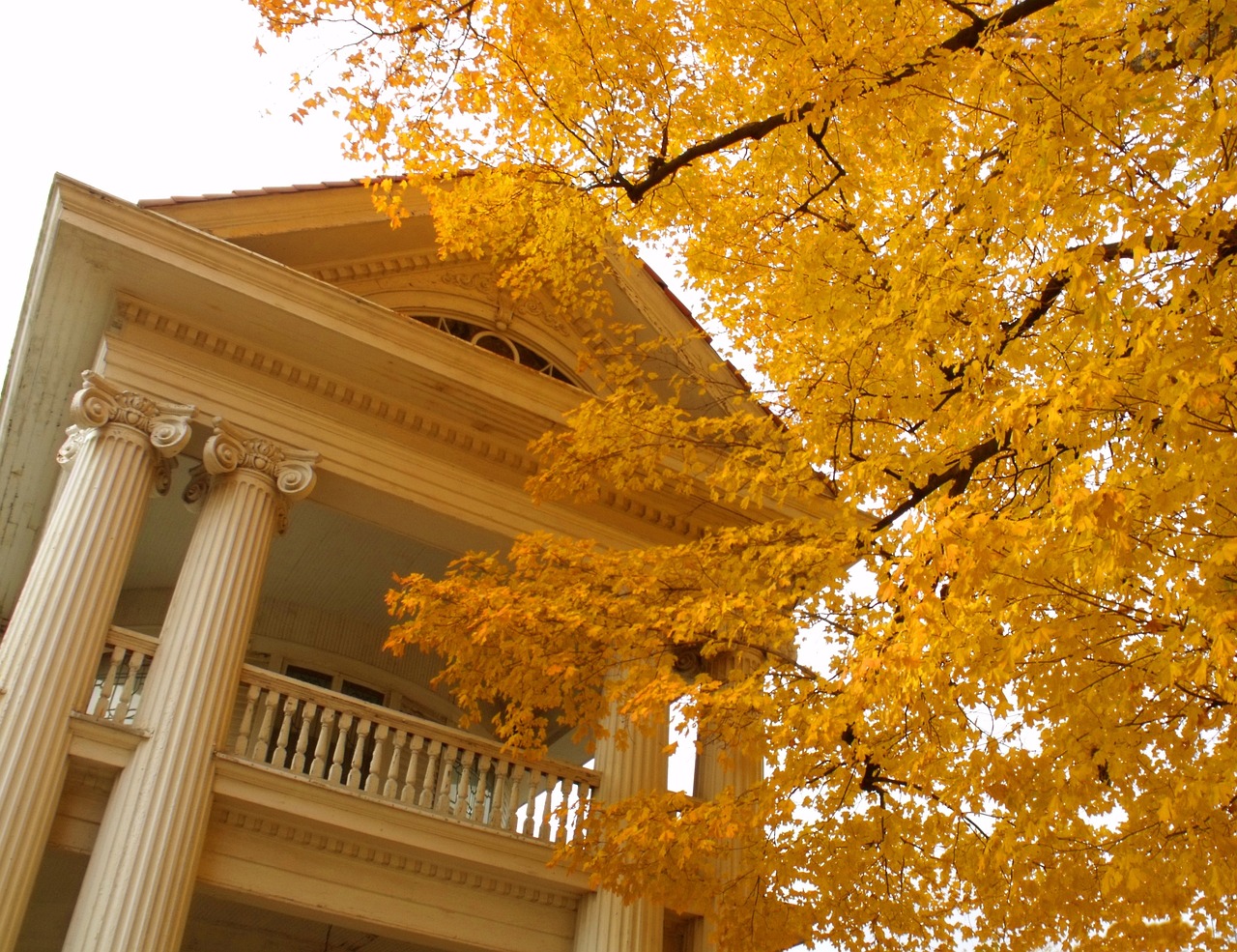
Ethics and Political Life
When we think about ethics in the context of politics, it can often feel like trying to mix oil and water. However, for Spinoza, these two realms are intricately intertwined. He believed that our ethical principles are not just abstract ideas; they are the very foundation upon which political life is built. In Spinoza's view, ethics and politics cannot be separated without risking the stability of society itself. So, what does this mean for us today?
Spinoza argued that a well-ordered society must reflect the natural order of things. This means that justice, rights, and the social contract should be grounded in the ethical principles that promote the well-being of all individuals. To him, the state should not merely enforce laws but should actively work to foster an environment where individuals can thrive. This perspective challenges us to reconsider the role of government—not as a distant authority but as a facilitator of our collective ethical lives.
In Spinoza's framework, the ethical life is deeply connected to the concept of freedom. He believed that true freedom is not the absence of constraints but rather the ability to act according to reason and understanding. This is where the state plays a crucial role. A government that respects individual freedoms while promoting the common good creates a space where ethical behavior can flourish. It's like a garden: without the right conditions and care, nothing will grow. Similarly, without a supportive political structure, ethical behavior can wither away.
Moreover, Spinoza's ideas raise important questions about the nature of justice. For him, justice is not simply about adhering to laws but is about achieving harmony within society. He viewed justice as a reflection of the natural order, where each individual's rights are respected and upheld. This leads us to think about how laws should be crafted. Are they merely rules to follow, or do they serve a greater purpose in achieving a just society? Spinoza would argue that laws should be designed to promote ethical behavior and the well-being of all.
To illustrate Spinoza's perspective further, consider the following table that outlines the relationship between ethics and political life according to his philosophy:
| Aspect | Ethics | Political Life |
|---|---|---|
| Foundation | Natural Order | Common Good |
| Freedom | Ability to Act According to Reason | Respect for Individual Rights |
| Justice | Harmony in Society | Enforcement of Ethical Principles |
In conclusion, Spinoza's integration of ethics and political life challenges us to rethink how we view governance. It’s not just about power dynamics or legal frameworks; it’s about creating a society that nurtures ethical behavior and promotes the well-being of its citizens. As we navigate our modern political landscape, his insights serve as a reminder that our ethical choices and our political structures are inextricably linked. So, the next time you think about politics, ask yourself: how can we align our ethical principles with our political actions to create a better society for all?
- What is Spinoza's view on the relationship between ethics and politics?
Spinoza believes that ethics and politics are deeply interconnected, with ethical principles forming the foundation of a just political life. - How does Spinoza define justice?
For Spinoza, justice is about achieving harmony in society rather than merely adhering to legalistic interpretations of law. - What role does individual freedom play in Spinoza's political philosophy?
Individual freedom, for Spinoza, involves the ability to act according to reason and understanding, which is essential for a well-functioning society.
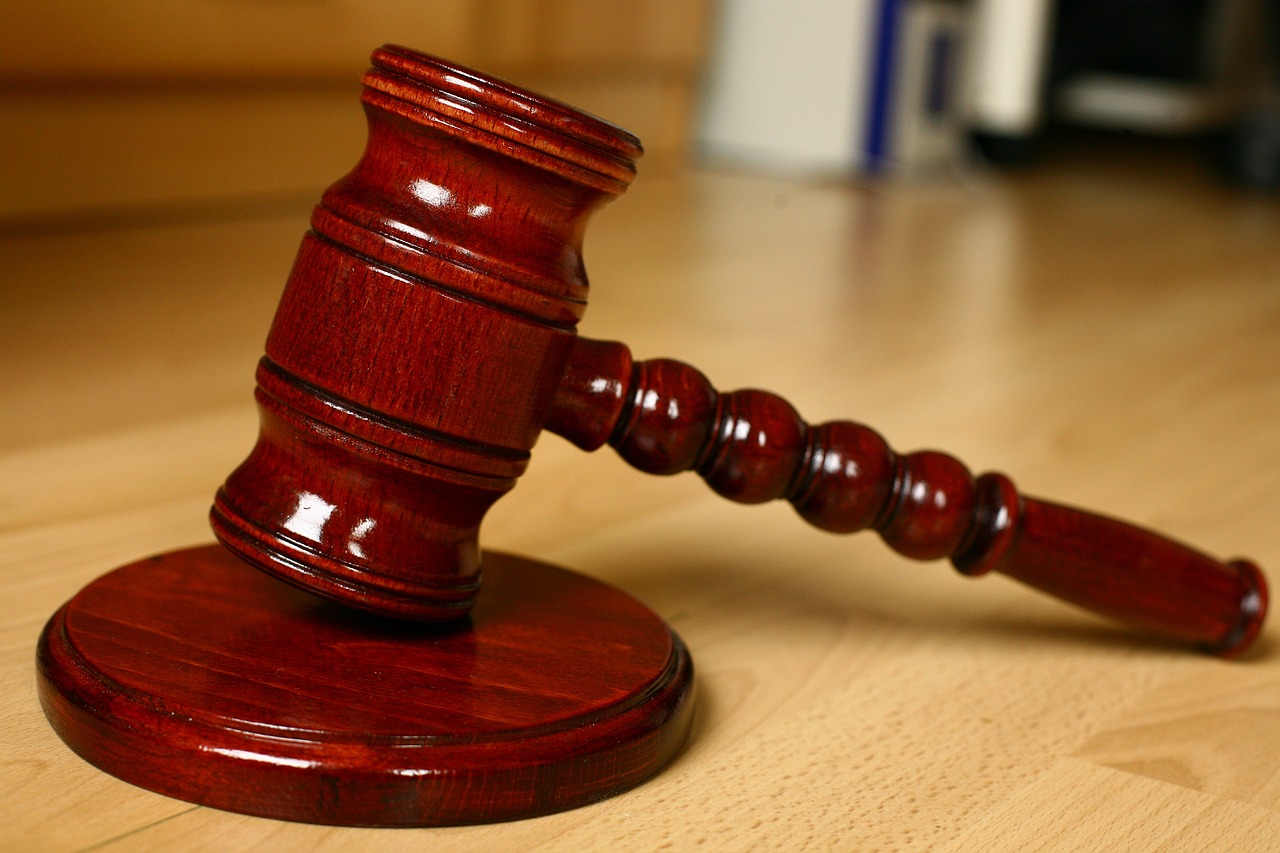
Justice in Spinoza's Thought
When we dive into Spinoza's conception of justice, we find that it is far from the rigid, often punitive interpretations that dominate modern discourse. For Spinoza, justice is intricately linked to the natural order of the universe. He viewed justice not merely as a set of legal codes or societal rules but as a fundamental principle that promotes harmony within society. Imagine a well-tuned orchestra, where each instrument plays its part in perfect synchrony; that’s how Spinoza envisioned a just society operating. Each individual, while unique, contributes to the collective well-being.
Spinoza's perspective on justice can be summarized through a few key points:
- Harmony Over Punishment: Justice, in his view, is about fostering a harmonious existence rather than merely punishing wrongdoers. He believed that a just society should cultivate conditions that allow individuals to thrive together.
- Social Responsibility: He argued that individuals have a duty to contribute to the common good, which implies that justice is a shared responsibility rather than an isolated concern.
- Natural Rights: Spinoza posited that rights emerge from our nature as rational beings. Therefore, justice is rooted in our ability to reason and act in ways that promote collective welfare.
In Spinoza's framework, justice is not a static concept; it evolves with society. He believed that as society progresses and individuals grow in understanding, the notion of justice should also adapt. This fluidity is crucial because it allows justice to remain relevant and effective in addressing the needs and challenges of the time.
Moreover, Spinoza's approach to justice is deeply intertwined with his ethical views. He maintained that ethical behavior leads to just outcomes. The ethical life, characterized by rationality and empathy, directly influences the creation of a just society. In essence, when individuals act ethically, they contribute to a collective environment that promotes justice. This relationship between ethics and justice underscores Spinoza's belief that true justice cannot exist without a foundation of ethical principles.
To further illustrate Spinoza's views on justice, consider the following table that contrasts his ideas with more conventional notions of justice:
| Aspect | Spinoza's View | Conventional View |
|---|---|---|
| Definition | Harmony and collective well-being | Legalistic and punitive |
| Focus | Social responsibility and ethics | Individual rights and punishment |
| Nature | Dynamic and evolving | Static and fixed |
In conclusion, Spinoza's understanding of justice challenges us to rethink our own perceptions. Rather than viewing justice solely as a system of laws, he invites us to consider it as a living, breathing concept that thrives on ethical behavior and social responsibility. By embracing this holistic view, we can aspire to create a society that not only punishes wrongdoing but also nurtures the conditions for genuine justice to flourish.
Q1: How does Spinoza define justice?
A1: Spinoza defines justice as a principle rooted in the natural order, emphasizing harmony and the collective well-being of society rather than mere legalistic interpretations.
Q2: Why is ethics important in Spinoza's view of justice?
A2: Ethics is crucial because Spinoza believes that ethical behavior leads to just outcomes. A society grounded in ethical principles is more likely to achieve justice.
Q3: How does Spinoza's view of justice differ from modern interpretations?
A3: Unlike modern interpretations that often focus on punishment and legal codes, Spinoza's view emphasizes harmony, social responsibility, and the dynamic nature of justice.

The Social Contract
When we dive into Spinoza's perspective on the social contract, we find a refreshing take on how societies can be structured for the benefit of all. Unlike traditional views that often emphasize the authority of a ruler or a governing body, Spinoza's approach highlights the importance of collective agreement among individuals. He argues that the social contract is not merely a set of rules imposed from above but a mutual understanding that prioritizes collective security and mutual benefit.
At the heart of Spinoza's social contract is the idea that individuals come together to form a society out of self-interest, but this self-interest is not selfish in nature. Instead, it is about recognizing that one's own well-being is intricately linked to the well-being of others. In this light, the social contract becomes a pathway for individuals to achieve their goals while contributing to the greater good. It's akin to a dance where each participant must be in sync with the others to create a harmonious performance. If one dancer falters, the entire ensemble suffers.
Spinoza posits that the legitimacy of the state arises from its ability to fulfill the needs and desires of its citizens. This means that a government must be accountable to the people it serves, and its authority is derived from the consent of the governed. In this way, the social contract serves as a safeguard against tyranny, ensuring that power remains in the hands of the people. Just imagine a ship at sea; the crew must work together to navigate the waters. If one member tries to seize control for personal gain, the whole ship risks capsizing.
Moreover, Spinoza's social contract emphasizes the importance of justice and rights as foundational elements of governance. He believes that a just society is one where individuals are free to pursue their own interests, provided they do not infringe upon the rights of others. This balance creates a framework where laws are not merely punitive but are designed to promote the common good. In essence, Spinoza's vision of the social contract is a call for a society built on cooperation and understanding, where the well-being of each individual contributes to the well-being of all.
To encapsulate Spinoza's views on the social contract, let’s summarize some key points:
- Collective Agreement: The contract is formed through mutual consent among individuals.
- Self-Interest and Cooperation: Individual well-being is linked to the well-being of others.
- Accountability: The authority of the state must derive from the consent of its citizens.
- Justice and Rights: A just society promotes individual rights while ensuring communal harmony.
In conclusion, Spinoza's social contract proposes a revolutionary framework for understanding the relationship between individuals and the state. It moves away from the idea of top-down authority and instead champions a model based on mutual respect, shared goals, and collective responsibility. This perspective not only enriches our understanding of political philosophy but also serves as a guiding principle for contemporary discussions on governance and social justice.
What is Spinoza's view on the social contract?
Spinoza views the social contract as a mutual agreement among individuals to form a society that prioritizes collective security and mutual benefit, emphasizing the importance of cooperation over authority.
How does Spinoza's social contract differ from traditional views?
Unlike traditional views that often focus on a ruler's authority, Spinoza’s social contract emphasizes the consent of the governed and the accountability of the state to its citizens.
What role does justice play in Spinoza's social contract?
Justice in Spinoza's social contract is about ensuring that individual rights are respected while promoting the common good, creating a balanced relationship between personal liberty and societal harmony.
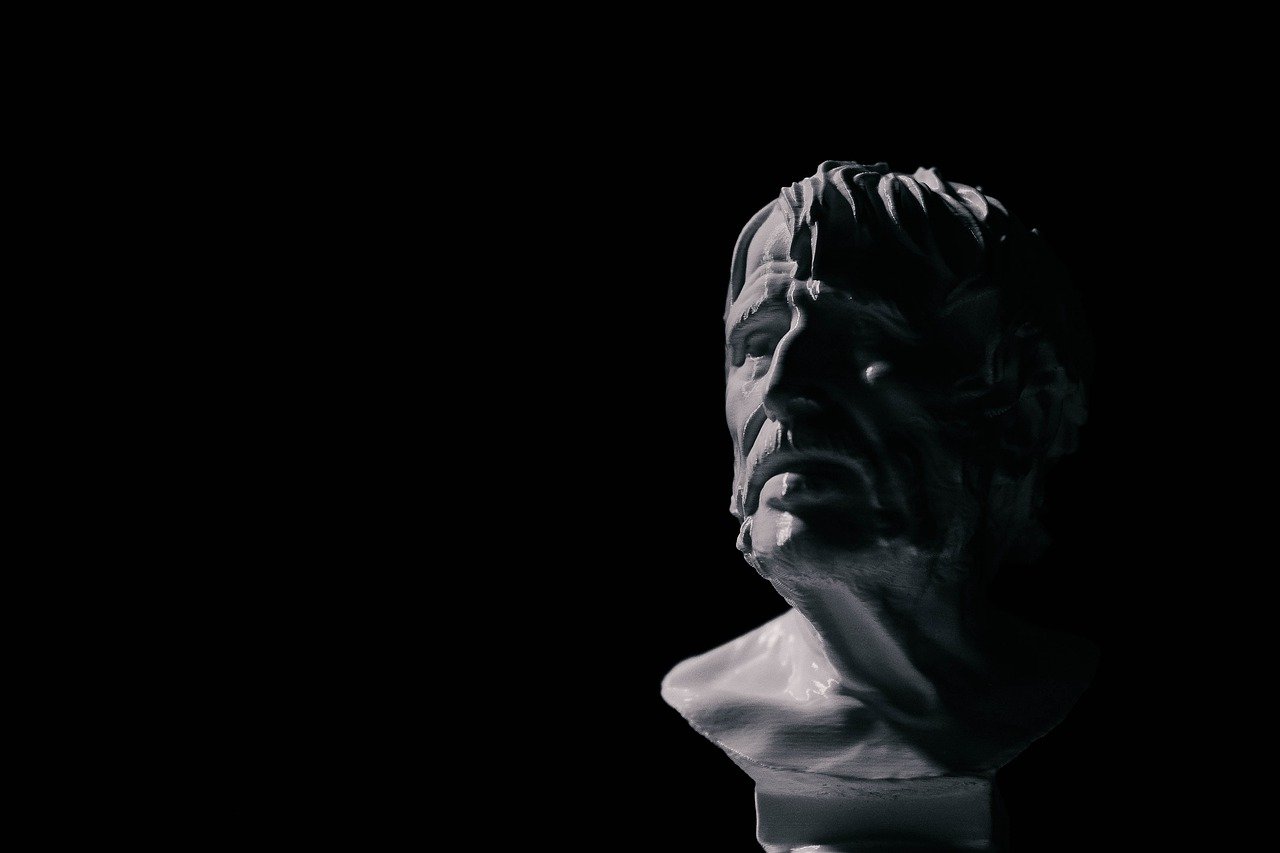
Influence of Historical Context
To truly grasp the essence of Spinoza's political philosophy, one must delve into the historical context that shaped his ideas. Living in the 17th century, Spinoza was a product of a time marked by significant political upheaval and transformation in Europe. The aftermath of the Thirty Years' War, the rise of nation-states, and the beginnings of modern democracy all played crucial roles in influencing his thoughts. Spinoza's environment was rife with conflict and change; the struggle between religious authority and emerging secular governance was palpable, and it profoundly impacted his views on power and society.
During this period, Europe was witnessing a shift from feudal systems to more centralized forms of governance. The Enlightenment was just around the corner, bringing with it new ideas about reason, individual rights, and the role of the state. Spinoza was not just an observer; he was an active participant in the intellectual debates of his time. His writings reflect a deep engagement with the philosophical currents of his day, particularly the works of Descartes and Hobbes. However, while Hobbes emphasized a strong, sometimes authoritarian state to maintain order, Spinoza proposed a more democratic vision, where the collective will of the people would guide governance.
Moreover, Spinoza's Jewish heritage and his eventual excommunication from the Jewish community in Amsterdam highlight the complex interplay between religion and politics in his life. His experiences with religious dogmatism informed his arguments for religious tolerance and freedom of thought. He recognized that a stable society could only flourish when individuals were allowed to express their beliefs without fear of persecution. This understanding was revolutionary for his time and laid the groundwork for modern secular political thought.
In addition, the political landscape of the Dutch Republic, where Spinoza lived, was relatively progressive compared to other European states. The Republic was known for its relative religious tolerance and democratic governance, which provided Spinoza with a unique backdrop to develop his ideas. The interplay of various religious groups and the push for civil liberties influenced his belief in the necessity of a social contract that prioritized collective security and mutual benefit. In essence, Spinoza's political philosophy can be seen as a direct response to the challenges and opportunities presented by the historical context in which he lived.
By examining Spinoza's work through the lens of his historical environment, we can better appreciate the revolutionary nature of his ideas. They were not merely theoretical musings; they were deeply rooted in the realities of a changing world, reflecting a profound understanding of the human condition and the complexities of governance. As we continue to explore Spinoza's influence on modern political thought, it becomes evident that his insights remain relevant, echoing through the ages as we grapple with similar issues of authority, freedom, and the role of the state in our lives.
- What was Spinoza's view on democracy? Spinoza believed in a form of democracy where power resided with the people, emphasizing collective governance over authoritarian rule.
- How did Spinoza reconcile individual freedom with societal demands? He argued that personal liberty should coexist with the needs of a cohesive society, balancing self-interest with communal well-being.
- What role did historical context play in Spinoza's philosophy? The political upheaval and religious conflicts of the 17th century significantly influenced his thoughts on governance, ethics, and social contracts.
- Why is Spinoza's philosophy still relevant today? His ideas about democracy, individual rights, and the separation of church and state resonate in contemporary discussions about governance and societal values.

Spinoza and Religious Tolerance
When we dive into Spinoza's political philosophy, one of the most striking elements is his staunch advocacy for religious tolerance. In a world often marred by conflict and division due to differing beliefs, Spinoza's ideas shine like a beacon of hope. He argued that for society to flourish, it must embrace a culture of coexistence, where various religions can thrive without fear of persecution. Imagine a garden where every flower, regardless of its color or type, is allowed to bloom. This beautiful metaphor captures Spinoza's vision for a harmonious society.
Spinoza believed that the intertwining of religion and politics often leads to strife and oppression. He posited that the state should maintain a clear boundary between itself and religious institutions. This separation is crucial because when religion holds too much power over governance, it can lead to dogmatism and the suppression of individual thought. In Spinoza's view, a government that respects religious diversity is not just a nice idea—it's a fundamental necessity for a stable society.
To understand Spinoza's perspective, it’s essential to consider the historical context in which he lived. The 17th century was a turbulent time in Europe, characterized by religious wars and conflicts. Spinoza witnessed firsthand the chaos that ensues when differing beliefs clash violently. His philosophy emerged as a direct response to this turmoil, advocating for a society where freedom of thought is paramount. He believed that individuals should have the right to express their beliefs freely, as long as they do not infringe upon the rights of others.
In his seminal work, Theological-Political Treatise, Spinoza presents compelling arguments for the separation of church and state. He contends that the state should not impose any religious beliefs on its citizens. Instead, it should focus on maintaining peace and security, allowing individuals the freedom to practice their beliefs or to choose not to believe at all. This approach not only fosters a sense of unity among diverse groups but also promotes a culture of mutual respect and understanding.
Spinoza's call for religious tolerance is not merely theoretical; it has practical implications for modern governance. Today, many democratic societies grapple with the challenge of ensuring that all voices are heard and respected. By looking back at Spinoza's ideas, we can glean valuable insights into how to navigate these complex issues. His philosophy reminds us that a society enriched by diverse perspectives is far stronger than one that seeks to enforce conformity.
In summary, Spinoza's advocacy for religious tolerance is a cornerstone of his political thought. By promoting a society where different beliefs can coexist peacefully, he laid the groundwork for modern democratic ideals. His vision encourages us to foster an environment where differences are celebrated rather than feared, ultimately leading to a more just and equitable world.
- What is Spinoza's main argument for religious tolerance? Spinoza argues that for a society to be stable and harmonious, it must respect and allow diverse religious beliefs to coexist without interference from the state.
- How does Spinoza's context influence his views on religion? Living during a time of religious conflict in Europe, Spinoza's experiences shaped his belief that intertwining religion and politics leads to oppression and strife.
- What impact do Spinoza's ideas have on modern society? His advocacy for religious tolerance and the separation of church and state continues to resonate in contemporary discussions about governance and individual rights.
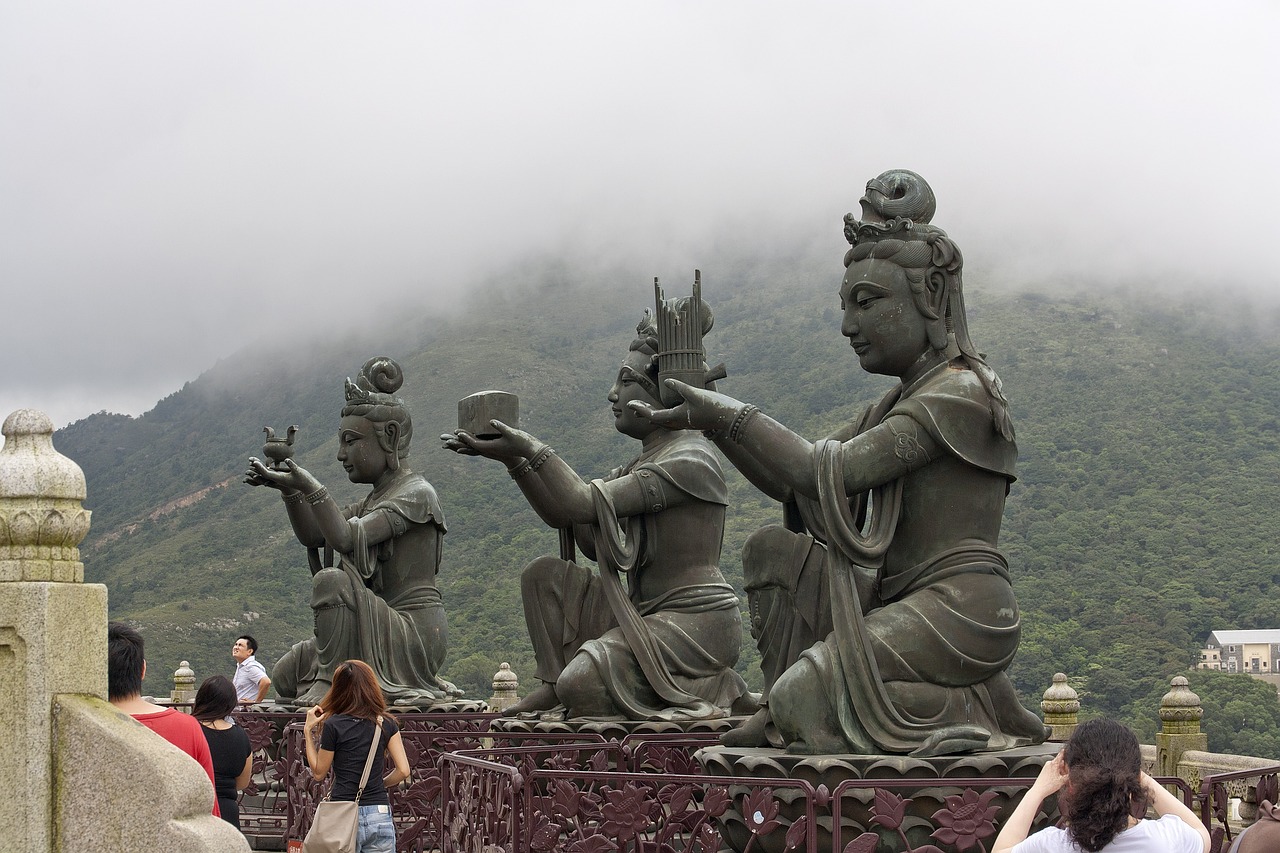
Critique of Religious Authority
Baruch Spinoza's critique of religious authority is nothing short of revolutionary. In an era where the church wielded immense power over not just spiritual matters but also political affairs, Spinoza dared to challenge the status quo. He argued that religion should not dictate governance, and that the intertwining of church and state often leads to oppression rather than enlightenment. Isn't it fascinating how his thoughts echo through time, reminding us of the importance of separating belief from politics?
Spinoza believed that dogmatism—the rigid adherence to religious doctrines—stifles individual thought and promotes a culture of conformity. He posited that when religious authorities hold sway over public life, they tend to prioritize their interests over the well-being of the populace. This creates a dangerous environment where dissent is not tolerated, and freedom of thought is sacrificed at the altar of obedience. In his view, true spirituality should foster critical thinking and personal interpretation, rather than blind submission.
To illustrate his point, Spinoza highlighted the historical conflicts that arose from religious intolerance. He pointed out that wars and persecutions often stem from a desire to impose one religious belief over another, leading to societal division and chaos. In contrast, he advocated for a society where diversity of beliefs is not only accepted but celebrated. This vision of coexistence is essential for a harmonious society, as it allows individuals to pursue their spiritual paths without fear of reprisal.
Furthermore, Spinoza's critique extends to the moral implications of religious authority. He argued that morality should not be dictated by religious texts but should emerge from our understanding of human nature and the world around us. He believed that ethical behavior is rooted in reason and the pursuit of collective well-being rather than adherence to arbitrary rules imposed by religious institutions. This perspective encourages a more humanistic approach to ethics, where compassion and justice take precedence over dogma.
In a world where misinformation and manipulation can easily masquerade as truth, Spinoza's thoughts on the critique of religious authority serve as a poignant reminder of the need for intellectual freedom. He challenges us to question the narratives presented to us, to seek our own truths, and to create a society that values individual thought over collective dogma. The implications of his ideas are profound, urging us to cultivate a political landscape that respects and embraces diversity in all its forms.
In summary, Spinoza’s critique of religious authority remains relevant today, as it raises essential questions about the role of faith in public life. How do we ensure that our beliefs enhance rather than hinder our collective existence? By fostering a culture of tolerance and encouraging open dialogue, we can create a society that honors both individual liberty and communal harmony.
- What was Spinoza's main argument against religious authority?
Spinoza argued that religious authority often leads to oppression and stifles individual thought, advocating for the separation of religion and state. - How did Spinoza view the relationship between ethics and religion?
He believed that ethics should be based on reason and human nature, rather than dictated by religious texts. - Why is religious tolerance important in Spinoza's philosophy?
Spinoza saw religious tolerance as essential for a stable society, promoting coexistence and preventing conflict arising from dogmatism.

The Legacy of Spinoza's Political Ideas
Spinoza's political philosophy has left an indelible mark on modern democratic thought, resonating through the ages and influencing countless thinkers and political movements. His ideas about democracy, individual freedom, and the role of the state continue to be relevant today, as societies grapple with issues of governance and civil rights. Imagine a world where the principles of collective governance and individual liberties are not just ideals, but lived realities. This is the world Spinoza envisioned, and his legacy serves as a guiding light for those advocating for a more equitable society.
One of the most significant aspects of Spinoza's legacy is his unwavering commitment to the idea that power should reside with the people. Unlike many of his contemporaries, who viewed authority as something to be held by a select few, Spinoza championed the notion that true governance arises from the collective will of the populace. This perspective laid the groundwork for modern democratic principles that prioritize citizen participation and representation. In a time when monarchies dominated, Spinoza's radical ideas challenged the status quo, paving the way for future democratic revolutions.
Furthermore, Spinoza's emphasis on religious tolerance has had a profound impact on the development of secular governance. He argued that a stable society could only be achieved when individuals are free to practice their beliefs without interference from the state. This idea of separating church and state not only promotes coexistence among diverse religious groups but also safeguards individual freedoms. As we reflect on contemporary issues surrounding religious freedom and discrimination, Spinoza's insights remain as pertinent as ever.
Spinoza’s critique of dogmatism and authoritarianism in both political and religious spheres also resonates strongly in today's discourse. His belief that free thought is essential for a healthy society encourages ongoing debates about censorship, propaganda, and the role of education in fostering critical thinking. By advocating for a society where ideas can be freely exchanged, Spinoza laid the groundwork for the Enlightenment and the development of liberal democracies, which prioritize individual rights and freedom of expression.
To illustrate the enduring relevance of Spinoza's ideas, consider the following table that highlights key themes in his political philosophy and their modern implications:
| Spinoza's Ideas | Modern Implications |
|---|---|
| Democracy as Collective Governance | Encourages participatory democracy and civic engagement. |
| Individual Freedom | Supports human rights movements and personal liberties. |
| Religious Tolerance | Promotes secularism and coexistence among different faiths. |
| Critique of Dogmatism | Advocates for free speech and critical discourse in society. |
In conclusion, the legacy of Spinoza's political ideas is not merely a relic of the past; it is a vibrant part of our ongoing conversation about governance, rights, and societal values. His vision of a society where individuals are empowered to think freely and participate actively in their governance continues to inspire movements for change around the world. As we navigate the complexities of modern politics, revisiting Spinoza's insights can provide a vital framework for understanding and addressing contemporary challenges.
- What are the main themes of Spinoza's political philosophy?
Spinoza's political philosophy revolves around democracy, individual freedom, religious tolerance, and the critique of dogmatism. - How did Spinoza influence modern democratic thought?
His ideas challenged traditional authority and emphasized the importance of collective governance and citizen participation. - Why is religious tolerance important in Spinoza's philosophy?
Spinoza believed that a stable society could only exist when individuals are free to practice their beliefs, promoting coexistence and individual freedoms. - What is the relevance of Spinoza's critique of dogmatism today?
His critique encourages free thought and critical discourse, which are essential for a healthy, functioning democracy.
Frequently Asked Questions
- What is Spinoza's view on democracy?
Spinoza envisions democracy as a system where the power truly lies with the people. He challenges traditional authority by advocating for collective governance, suggesting that the best decisions arise from the participation of all citizens rather than a select few. This perspective emphasizes the importance of individual voices in shaping a just society.
- How does Spinoza reconcile individual freedom with societal demands?
Spinoza believes that individual freedom is essential, but it must be balanced with the needs of the community. He argues that personal liberty should not infringe on the collective well-being. This balance fosters a society where individuals can pursue their own interests while contributing to a harmonious social order.
- What role does ethics play in Spinoza's political philosophy?
Ethics is fundamental to Spinoza's political thought. He posits that a just society is built on ethical principles that promote fairness and rights. His ethical framework informs his views on justice, suggesting that true justice is about achieving societal harmony rather than just adhering to legalistic norms.
- Can you explain Spinoza's conception of justice?
For Spinoza, justice is intertwined with the natural order of things. He sees it as a means to foster harmony within society, rather than merely a set of laws to be enforced. This understanding positions justice as a dynamic process aimed at promoting the common good, rather than a static legal framework.
- What is Spinoza's perspective on the social contract?
Spinoza offers a unique take on the social contract, emphasizing the importance of collective security and mutual benefit. He argues that individuals come together to form a society not just for protection, but to enhance their own freedoms and opportunities through cooperation.
- How does the historical context influence Spinoza's political ideas?
Understanding the 17th-century European political landscape is crucial to grasping Spinoza's philosophy. The tumultuous events of his time, including religious conflicts and the rise of nation-states, shaped his thoughts on governance, leading him to advocate for tolerance and rational discourse in politics.
- What is Spinoza's stance on religious tolerance?
Spinoza champions religious tolerance as a cornerstone of a stable society. He argues that allowing diverse beliefs to coexist is essential for peace and social harmony. His views advocate for the separation of church and state, promoting a political environment where freedom of thought can flourish.
- How does Spinoza critique religious authority?
Spinoza critiques religious authority by challenging the intertwining of religion and politics. He argues against dogmatism and the imposition of religious beliefs on governance, advocating for a system where freedom of thought is paramount. This critique paves the way for more secular and rational approaches to politics.
- What is the legacy of Spinoza's political philosophy?
The legacy of Spinoza's political ideas is profound, influencing modern democratic thought. His concepts of individual rights, collective governance, and ethical considerations in politics resonate in contemporary discussions about democracy and societal values, highlighting the relevance of his work even today.


